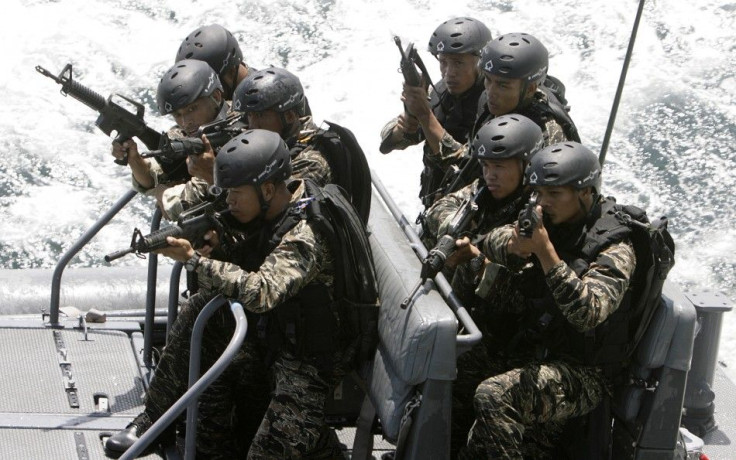South China Sea: China Will Station Troops On Disputed Island, India To Continue Exploration Ignoring Chinese Objection

China will establish a military garrison on a disputed island in the South China Sea, amid escalating tensions that have strained its ties with the neighboring nations and the U.S.
The military command will be based in Sansha City on Woody Island in the Paracels. The city was established June 21 in an area under the Chinese jurisdiction which is also claimed by Vietnam.
The garrison was approved as 1,100 Chinese residents elected 45 legislators Sunday to the new city's congress.
The troops would be ''responsible for managing the city's national defense mobilization, military reserves and carrying out military operations,'' Xinhua news agency reported.
The Central Military Commission (CMC) authorized the People's Liberation Army (PLA) Guangzhou Military Command to form a military command, which will be ''under the dual leadership of the Hainan provincial sub-command and the city's civilian leaders, state media said.
The move to station troops is the latest in the recent efforts by China to assert its claims over the resource-rich islands in the South China Sea, which are also claimed by the Philippines, Vietnam, Taiwan and Brunei.
About 150 Vietnamese protestors Sunday registered their objection to China's claims over the Spratly and Paracel islands.
Philippine President Benigno Aquino is expected to address the South China Sea dispute during his annual state of the nation speech to Congress on Monday.
The Philippines and Vietnam, which were involved in a dispute with China recently over the ownership of the Scarborough Shoal, have been seeking the support of the Association of Southeast Asian Nations (ASEAN) in pressuring Beijing to accept the code of conduct.
China lays claim to almost the entire South China Sea, including what is recognized by the U.N. as the Exclusive Economic Zone of other neighbors, and would rather deal separately with the nations with which it has maritime tensions than confront the 10-member bloc.
ASEAN failed to reach a common ground over the South China Sea dispute. For the first time in its 45-year history, it failed to produce a joint statement at a regional summit in Cambodia last week.
Though the disagreement was attributed to overlapping claims of the Philippines, Vietnam, Brunei and Malaysia on certain parts of the South China Sea, it also exposed how Chinese pressure has polarized the regional politics.
The ASEAN Chair, Cambodia, which relies on China for billions of dollars in financial assistance, is believed to be under tremendous pressure from Beijing and had rejected a proposal by the Philippines and Vietnam to mention their territorial disputes with China in the group statement.
Meanwhile, India's state-run Oil and Natural Gas Corporation (ONGC) will continue its oil and gas exploration in the South China Sea, off the Vietnam coast, ignoring Chinese objection, the Wall Street Journal reported Friday.
ONGC Videsh, the overseas arm of ONGC, has accepted Vietnam's proposal to continue investment in Block 128 after Hanoi offered additional date which will improve the economic feasibility and commercial viability of the Indian operations.
The plan to continue investment is a turnaround from ONGC's decision in May to pullout from certain oil blocks citing techno- commercial considerations in Vietnamese waters, as the establishment seemed to be disinterested in continuing the project which was not economically viable.
India's decision to renew contract with Vietnam is likely to strengthen the bilateral ties but will annoy Beijing which has always opposed Indian presence in the region.
© Copyright IBTimes 2024. All rights reserved.






















